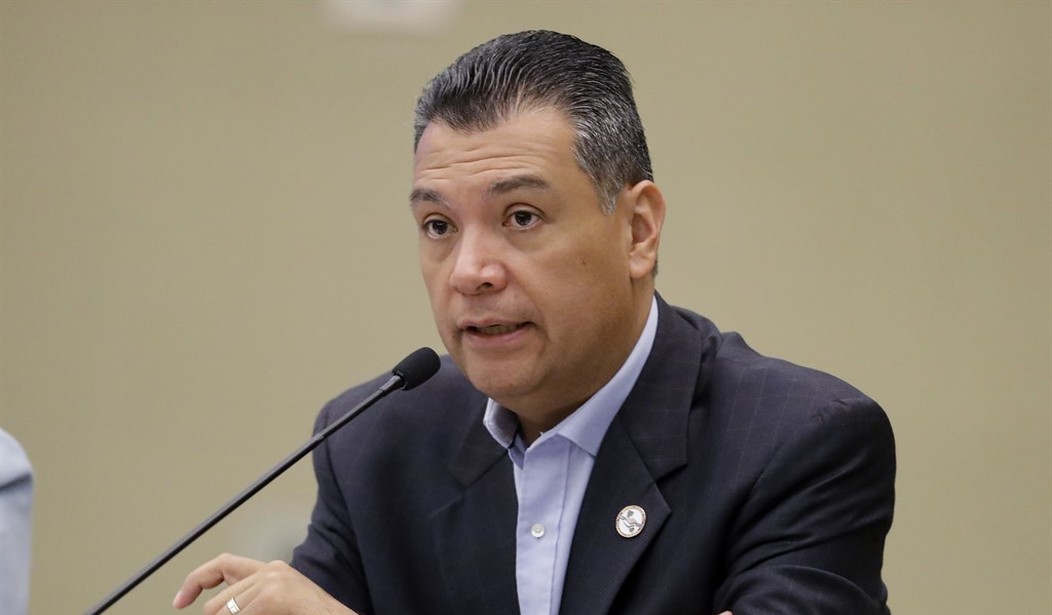Freshman Sen. Alex Padilla (D-CA) on Tuesday made the argument that voting in the United States of America is more difficult than obtaining a rifle. Padilla's words, however, are riddled with errors and based on rhetoric, not facts.
1. Background Checks, IDs, and Private Party Transfers
"There are some shocking disparities in legal state requirements for obtaining a weapon versus casting a ballot," Padilla said. "In 25 states, voters must be registered and have specific forms of ID in order to cast a ballot but those same states allow people to buy rifles without permits and require background checks for no sales."
When Padilla says no background checks are required for sales, he is conflating two issues. Whenever a person goes to a Federal Firearms Licensee (FFL) – commonly referred to as a "gun dealer" – the buyer is legally required to fill out a 4473 form so a background check can be completed. That is required for every single gun sale that takes place between a gun dealer and a purchaser.
What Padilla is referring to is Private Party Transfers (PPTs). That is when two average citizens decide to buy and sell guns to one another. It can also be when a person gifts a firearm to another family member. There are laws on the books regulating PPTs. Two private parties can transfer firearms to one another without going through an FFL "provided the transferor does not know or have reasonable cause to believe the transferee is prohibited from receiving or possessing firearms under federal law." In some states, like Padilla's home state of California, all PPTs must be done through an FFL, which is essentially a way for the Department of Justice to keep tabs on all guns. It creates a registry, which could later be used down the road for confiscation purposes. And it's why pro-gun supporters take issue with registries.
Recommended
2. Timing of Obtaining a Firearm
"We make it easier to buy a gun than we do to cast a ballot," he said. "New voters are able to obtain a rifle quicker than they're able to cast their first ballot."
I have voted in numerous states. In California, you say your name, give your address, and you're handed a ballot. The person checking you in and handing you your ballot does nothing to verify your identification or you are who you say you are. They assume you're telling the truth. In Idaho, you're required to show your ID, say your name and address, and then you're handed a ballot. Showing an ID takes about 30 seconds to a minute and then you're on your way.
When purchasing a firearm, assuming it's through an FFL, you're required to fill out a 4473, which includes details like your full name, ID number, address, social security number, and asks a wide range of questions to determine whether or not you're a prohibited posessor. The FFL then takes your 4473 and either uses the online portal or calls the National Crime Information Center to conduct your background check. Depending on how backed up NCIC is, the process can take 20 to 30 minutes. Sometimes they're backed up days at a time so you're left waiting. If you live in a state, like California, that has a waiting period, you conduct your background check and, assuming you're approved, you then wait the ample amount of time to retrieve your firearm (in CA it's 10 days).
How is this cumbersome process "easier" and "quicker" than voting?
Sen. Padilla: "In a majority of states, new voters are able to obtain a rifle quicker than they're able to cast their first ballot. It seems to me we have our priorities entirely backwards when it comes to this — when we make it easier to buy a gun than we do to cast a ballot." pic.twitter.com/W87OCNCkJ0
— CBS News (@CBSNews) March 23, 2021
Democrats are pushing "universal background checks" but the proposed bills have a number of flaws. It's not as straightforward as they make it out to be.

























Join the conversation as a VIP Member